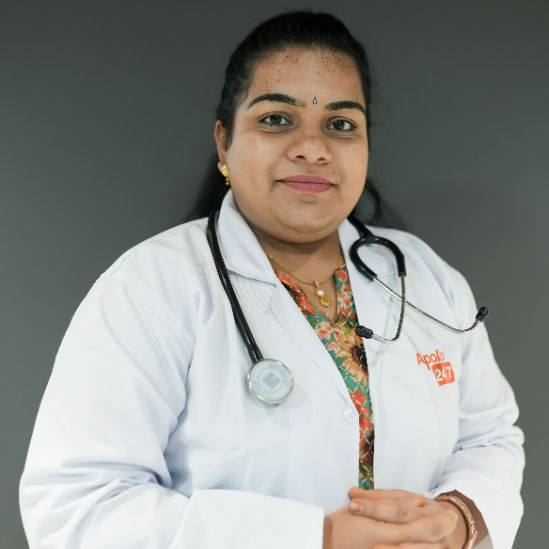How Often to Get Blood Work in the 30s?
Stay proactive about your health in your 30s! Learn how often you should get blood work done, what key tests to expect, and why regular screenings are vital for early detection and well-being.


How Often to Get Blood Work in the 30s?
Introduction
Entering your 30s is a crucial time to take charge of your health. While you may feel young and energetic, your body starts undergoing subtle changes that can impact your long-term well-being. Regular blood work is an excellent way to monitor your health, detect potential issues early, and make informed lifestyle choices.
But how often should you get blood tests in your 30s? Let’s break it down in a simple, easy-to-understand way.
Why Is Blood Work Important in Your 30s?
Your 30s are often a busy phase—juggling careers, family, and personal commitments. Amidst this, health can take a backseat. However, early detection of conditions like high cholesterol, diabetes, thyroid imbalances, or vitamin deficiencies can prevent serious complications later.
Blood tests help:
- Check cholesterol and blood sugar levels
- Monitor liver and kidney function
- Detect hormonal imbalances
- Identify vitamin deficiencies (like Vitamin D or B12)
- Assess thyroid health
By staying proactive, you can make small adjustments in diet, exercise, or medication before problems escalate.
How Often Should You Get Blood Work Done?
The frequency of blood tests depends on your health status, family history, and lifestyle. Here’s a general guideline:
1. If You’re Generally Healthy
- Every 2-3 years: A basic checkup (CBC, lipid profile, blood sugar, thyroid) is sufficient if you have no symptoms or risk factors.
- Annual tests: If you have a family history of diabetes, heart disease, or high blood pressure, yearly tests are advisable.
Get Your Symptoms Assessed
2. If You Have Existing Health Conditions
- Every 6-12 months: If you have diabetes, high cholesterol, or thyroid issues, regular monitoring is crucial.
3. If You’re Trying to Optimise Health
Once a year: If you’re into fitness, managing weight, or optimising nutrition, yearly tests can help track progress.
4. For Women (Especially Planning Pregnancy)
Annually or as advised: Hormonal checks (thyroid, iron, Vitamin D) are important, especially if planning a family.
Consult Top Physician For More Health Benefits
Key Blood Tests to Consider in Your 30s
Here are some essential tests to discuss with your doctor:
1. Complete Blood Count (CBC) – Checks for anaemia, infections, and overall health.
2. Lipid Profile – Measures cholesterol (LDL, HDL, triglycerides).
3. Blood Sugar Tests (Fasting & HbA1c) – Screens for diabetes risk.
4. Thyroid Function Test (TSH, T3, T4) – Detects hypothyroidism or hyperthyroidism.
5. Liver & Kidney Function Tests – Assesses organ health.
6. Vitamin D & B12 Levels – Common deficiencies that affect energy and immunity.
7. Iron & Ferritin (for women) – Helps detect anaemia.
When Should You Get Tested Sooner?
See a doctor and get blood work if you experience:
- Unexplained fatigue or weakness
- Sudden weight gain or loss
- Frequent infections
- Hair loss or dry skin
- Mood swings or depression
- High stress or poor sleep
Tips for Maintaining Healthy Blood Test Results
Small lifestyle changes can make a big difference:
- Eat a Balanced Diet – Include whole grains, lean proteins, and healthy fats.
- Exercise Regularly – Aim for 30 minutes of activity most days.
- Manage Stress – Practice yoga, meditation, or deep breathing.
- Stay Hydrated – Drink plenty of water for better kidney function.
- Limit Alcohol & Avoid Smoking – Both can impact liver and heart health.
Take Charge of Your Health with Apollo 24|7
Getting blood work done is quick and convenient with Apollo 24|7. You can:
- Book a home blood test – No need to visit a lab.
- Consult a doctor online – Discuss your results instantly.
- Track trends over time – Monitor improvements with digital reports.
- Why wait? Early detection is the best prevention. Schedule your blood test today!
Final Thoughts
Your 30s are the perfect time to build healthy habits and stay ahead of potential health risks. Regular blood work gives you valuable insights, helping you make informed decisions. Whether you’re completely healthy or managing a condition, staying proactive ensures a healthier future.
Consult Top Physician
Consult Top Physician

Dr. Rajib Ghose
General Physician/ Internal Medicine Specialist
25 Years • MBBS
East Midnapore
VIVEKANANDA SEBA SADAN, East Midnapore

Dr Divya Lekha Gunta
General Practitioner
10 Years • MBBS, MD (Pathology)
Visakhapatnam
Apollo 24|7 Clinic - Andhra Pradesh, Visakhapatnam

Dr. Shesham Srinidhi
General Practitioner
5 Years • MD(physician)
Hyderabad
Apollo 24|7 Clinic, Hyderabad
(150+ Patients)

Dr. Siri Nallapu
General Practitioner
5 Years • MBBS
Hyderabad
Apollo 24|7 Clinic, Hyderabad
Dr Rakesh Ram
General Physician/ Internal Medicine Specialist
4 Years • MBBS, MD (INTRNAL MEDICINE)
Secunderabad
Apollo Hospitals Secunderabad, Secunderabad
Consult Top Physician For More Health Benefits

Dr. Rajib Ghose
General Physician/ Internal Medicine Specialist
25 Years • MBBS
East Midnapore
VIVEKANANDA SEBA SADAN, East Midnapore

Dr Divya Lekha Gunta
General Practitioner
10 Years • MBBS, MD (Pathology)
Visakhapatnam
Apollo 24|7 Clinic - Andhra Pradesh, Visakhapatnam

Dr. Shesham Srinidhi
General Practitioner
5 Years • MD(physician)
Hyderabad
Apollo 24|7 Clinic, Hyderabad
(150+ Patients)

Dr. Siri Nallapu
General Practitioner
5 Years • MBBS
Hyderabad
Apollo 24|7 Clinic, Hyderabad
Dr Rakesh Ram
General Physician/ Internal Medicine Specialist
4 Years • MBBS, MD (INTRNAL MEDICINE)
Secunderabad
Apollo Hospitals Secunderabad, Secunderabad





